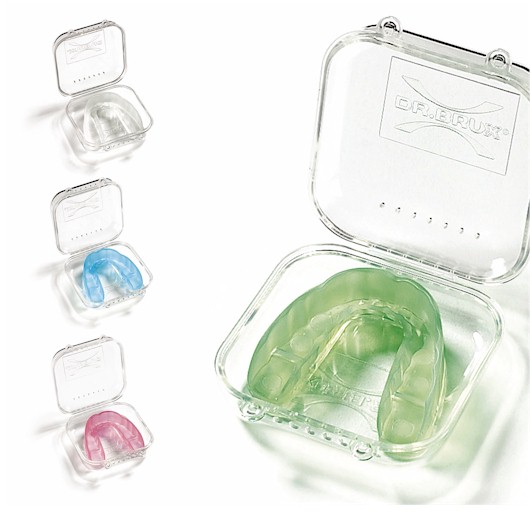If you do clench/grind your teeth frequently during night or day, you could be having bruxism. Bruxism is the habitual grinding or clenching oh the teeth during day or night, awake or sleeping. The incidence of bruxism has been variously reported as between 5% to 20 %.
Bruxism is divided into 2 types :
a) Day Time Bruxism also known as Diurnal Bruxism.
Day Time bruxism is either conscious or unconscious grinding of the teeth during the day. It can occurs along with parafunctional habits such as chewing pencils, nails, cheeks and lips. This type of bruxism is usually silent except in patients with organic brain disease.
b) Night Time Bruxism also known as Noctural Bruxism.
It is the subconscious grinding of teeth during sleep. This term is generally applied both to the clenching habit, during which pressure is exerted on the teeth and periodontium by actual grinding and tapping sound of the teeth. It is one of the most common sleep disorders.
OccurenceÂ
It may been seen in infant/babies with the eruption of the first tooth. Usually the lower teeth will erupts first in babies and the teeth will come in contact with the upper gums without teeth causing a wound in the gumpads. The reported incidence of bruxism in children varies widely from 7% to 88%.
It may occur throughout life, however it is seen to increase during mixed dentition period and decreases with age later.
Bruxism can occur at any stage of sleep. It has been seen to occur most frequently during the transition from a deeper stage of sleep to a lighter stage of sleep. Bruxism occuring at rapid eye movement stage is reported to be the most damaging.
Causes of Bruxism
a) Psychological factors  like high levels of anxiety, stress, emotional tension. When a person suffers from fear, rage, rejection or a variety of emotions which she/he is unable to express, these become hidden in the subconscious but are expressed periodically by numerous ways. Bruxism is a manifestation of nervous tension in children as well and may be related to chronic biting or chewing of toys.
b) Occupations. An overenthusiastic student or compulsive overachievers may also develope this habit. Â Athletes engaged in physical activities often develope bruxism, although the exact reason for this is uncertain. Voluntary bruxism is also recognized in those person who habitually chews gum,tobacco, toothpicks or pencils. Although voluntary, this too is a nervous reaction and may lead eventually to involuntary or subconscious bruxism.
c) Genetics. It is seen to play an important role in etiology of bruxism. Children of bruxing parents have an increased incidence of bruxism.
d) Systemic Factors. Magnesium deficiency has been reported as an etiological cause for bruxism and has treated several cases with therapeutic doses. GI disturbances from food allergies, enzymatic imbalances leading to chronic abdominal distress could also be a cause. Various systemic factors such as intestinal parasites, sub-clinical nutritional deficiencies,allergies and endocrinal disorders have also been attributed.
e)Allergies. Â Allergies have also been related to nocturnal bruxism.
f) Central Nervous System. The etiology of bruxism could be from certain definite cortical lesions. It is found in children with cerebral palsy and mental retardation.
Signs and Symptoms
It depends on :
a) Frequency of bruxism
b) Intensity with which the patient is bruxing
c) The age of the patient which may be associated with duration of the habit
Bruxism will cause :
A) Â Headache.
B) Tooth mobility.
C) Attrition of the teeth.
D) Pain in the jaw muscles on waking up
E) Pain in the tempero-mandibular joints
F) Deviation of the chin during mandibular movements occurs more frequently to the left.
G) Grinding and tapping sounds
H) Soft tissue trauma
Treatments
Visit a dentist for treatments of bruxism. There are a variety of treatments for different causes of bruxism.
a) Occusal Adjustment. This would results in instant disappearance of habitual grinding of the teeth. Any prematurities or occusal interferences in restorations should be corrected.
b) Occusal Splints. Vulcanite splints have been recommended to cover all the occusal surfaces of all the teeth. A reduction in the increased muscle tone is observed with its use.
c) A mouthguard  is designed for treatment of temperomandibular joint disorders.
d)Â Physchotherapy. Counselling the patient can lead to a decrease in tension and also create a habit awareness.
e) Relaxation therapy. Patient is asked to tense the muscle group in cnsideration and relax, thereby training the patient to relax the muscle group voluntarily.
f) Electrical  method. Electrogalvanic stimulation for muscle relaxation is currently utilized for treatment of bruxism.
g) Orthodontic Correction
h) Physical TherapyÂ


This is a really good post! My fiance clenches his teeth when he sleeps regardless if it’s day or night.
Thank you,Avondale. Im glad that my article helps.